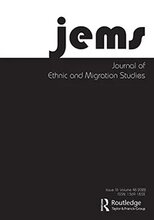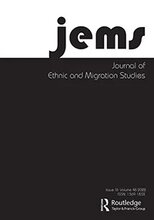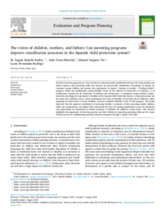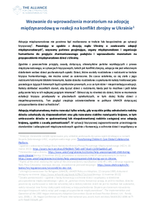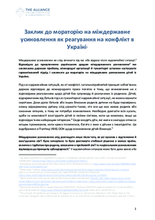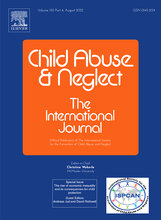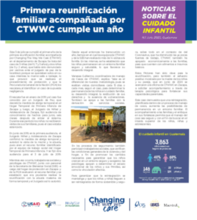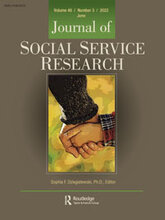Displaying 11 - 20 of 154
This paper aims to analyse how State policies, on the book and in practice, shape family reunification. It focuses on child migration under constraint in France, by analysing the timing and factors of (non-)reunification among foreign immigrants, whose legal conditions for family reunification are much more restrictive than for those who obtained the French citizenship.
This paper aims to analyse how State policies, on the book and in practice, shape family reunification. It focuses on child migration under constraint in France, by analysing the timing and factors of (non-)reunification among foreign immigrants, whose legal conditions for family reunification are much more restrictive than for those who obtained the French citizenship.
This research highlights the importance of involving parents and their children in improving parenting skills and the reunification process by implementing parental education programs through a unique work plan. This study examined the experiences of families in the Spanish Child Protection System.
Adopcja międzynarodowa nie powinna być realizowana w trakcie lub bezpośrednio po sytuacji kryzysowej. Pozostając w zgodzie z decyzją rządu Ukrainy o zawieszeniu adopcji międzynarodowych, wzywamy państwa przyjmujące, organy międzynarodowe i organizacje humanitarne do przyjęcia zharmonizowanego podejścia i wprowadzenia moratorium na przysposobienie międzynarodowe dzieci z Ukrainy. Zgodnie z powszechnie przyjętą zasadą dotyczącą obowiązków państw wynikających z prawa międzynarodowego, w sytuacjach kryzysowych, takich jak konflikt zbrojny, adopcja nie jest właściwym działaniem wobec dzieci pozbawionych opieki. Dzieci, które zostały rozdzielone z rodzicami w trakcie kryzysu humanitarnego, nie można uznać za osierocone. Do czasu ustalenia, co się stało z jego rodzicami lub innymi bliskimi krewnymi, każde dziecko rozdzielone z opiekunami należy traktować jako posiadające żyjących krewnych bądź opiekunów prawnych, a co za tym idzie – niepotrzebujące adopcji.
During emergencies, such as conflict, it is a well-accepted principle of States’ obligations under international law that adoption is not an appropriate response for unaccompanied and separated children. This is a joint call for a moratorium on intercountry adoption in response to the conflict in Ukraine. In line with the Ukrainian Government’s suspension of intercountry adoption, the joint statement urges receiving States, international bodies, and humanitarian agencies to adopt a harmonised approach and call for a moratorium on intercountry adoptions from Ukraine.
Міждержавне усиновлення не слід починати під час або відразу після надзвичайної ситуації. Відповідно до призупинення українським урядом міждержавного усиновлення ми закликаємо держави прийому, міжнародні організації й гуманітарні установи застосувати гармонізований підхід і закликати до мораторію на міждержавне усиновлення дітей із України.
This U.S. based study systematically summarizes the effectiveness of peer parent programs in child welfare on case outcomes, specifically permanency, time-in-care, and re-entry post reunification.
El estudio de caso, plasmado en una página, está dirigido a posibles donantes, público interesado y actores vinculados a la reforma del cuidado infantil, que desean aprender sobre los procedimientos relacionados con el primer caso exitoso de reunificación familiar a cargo de la Iniciativa Cambiando la Forma en que Cuidamos que opera en Guatemala y además sobre el importante papel de la gestión de casos. El presente estudio de caso fue escrito en julio del 2020, un año después de la reunificación.
This pilot study investigated a sample of caseworkers’ perceptions as related to social services for improving family unity post-reunification, as well as barriers that exist for families accessing social services in rural southeast Georgia in the US.

